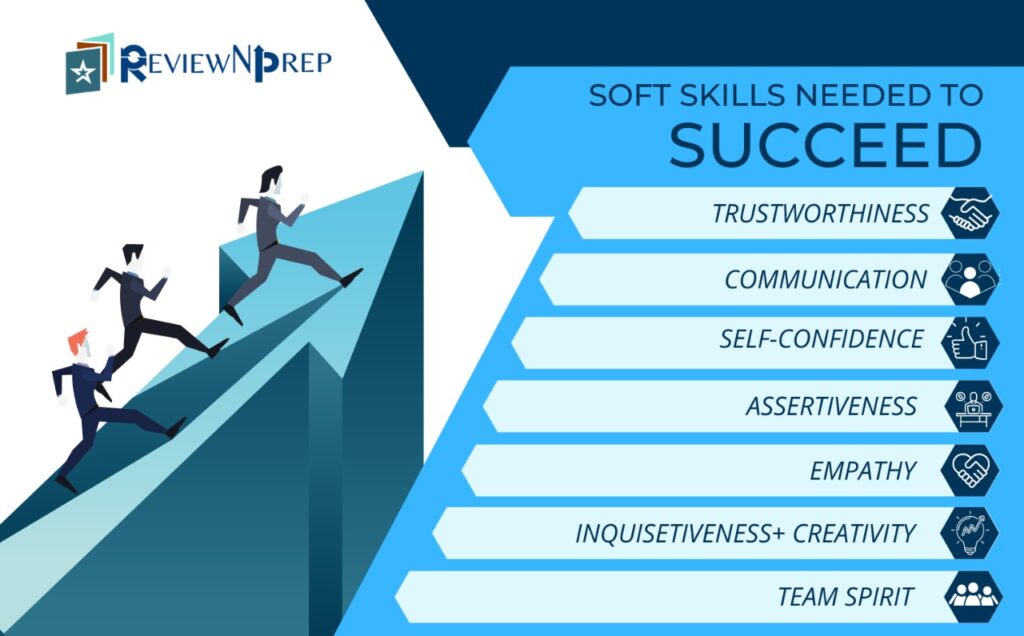|
|
Software Engineers – Soft skills are really essential for you to succeed!
If you aren’t convinced, read this blog.
So, here is a common story that we hear all the time about folks working in software development companies:
“John is an amazing developer with great technical skills. He has 7+ years of experience, has hands-on experience on Java, knows AWS commonly used services. John feels he deserve more salary and he starts applying for jobs outside of his company. John thinks that he would have no problem finding a job in a couple of weeks, would have 2-3 offers, and would then choose between one of them. Unfortunately, John doesn’t get a callback from the hiring manager after a couple of rounds of interviews. It’s been a month now and John’s job search is still going on.”
“Rishi just graduated and has a bachelor’s degree in Computer Science. Rishi is good at writing algorithms using Python. Rishi did an internship during his undergrad and has a few months of corporate experience. Rishi has applied to 10 jobs and has not heard back from 6 of them and the rest 4 have rejected him. Rishi’s job hunt is still on.”
If this sounds familiar, read on..
The IT world is rapidly changing. It is not just about technology anymore. A person with IT skills is not always guaranteed a job in the industry. There are other qualifications that can help them in their career. Employers these days are looking for more than just technical skills. The traditional way of hiring has been – “you are good at coding, you are in”. This is no longer applicable. Employers want software engineers who have the right mindset, skillset, and toolset to work in an agile environment.
So, why did John and Rishi struggle to find the right job –
“Engineers with IT skills but lacking soft skills are less likely to get hired by companies due to their lack of patience, communication skills, and interpersonal skill sets.“
What are soft skills?
Soft skills or otherwise known as personal skills, interpersonal skills, non-technical skills, essential skills, transferable skills, are skills that relate to how you work and interact with other people. Some common examples include communication, teamwork, and other interpersonal skills. These skills are hard to teach and are important for long-term success, which is why employers pay special attention to these skills.
Why are soft skills needed?
Many times we hear this question from software developers – “Do programmers need soft skills?”.
Turns out the answer is a resounding YES.
In an Indeed survey of 1,000 hiring managers, the most important attributes of top performers at their company are:

- Problem-solving
- Effective communication skills
- Self-direction
- Drive
- Adaptability/Flexibility
Some of the top five reasons these skills are so important are listed below:
- Hiring is time-consuming and expensive – It is a time-consuming process to hire an individual on a payroll. Moreover, the cost of hiring is something that can’t be recouped directly. Having the right soft skills ensure that the company will be getting someone who they want to work with for a long time. Employers highly value people who can resolve issues quickly and effectively. At the end of the day, employers want to save money long time by investing in the right resource.
- Build effective networking to succeed – Let’s be honest, with remote work gaining popularity, you must be able to engage with your fellow workers and work effectively. Having good soft skills means being able to communicate effectively and build relationships. It is not just about the human-technology connection but also how employees connect with each other.
- Transferable skills – If you’re looking for jobs, make sure to pay attention to the part of the job posting that calls for candidates with soft skills. Soft skills are often transferable across careers and industries. Even if you don’t match the exact profile in the job description, you can still possess many of the required traits. These skills can give you an edge over other candidates.
- Consistent execution – For a tech job, a hiring manager not only looks for coding skills but also an active demonstration of your ability to take initiative, and execution. Soft skills help you follow through on your ideas, using motivation, to translate brainstorming sessions into actionable projects.
- Career progression and promotion – Research has shown that an employee with stronger soft skills has a better chance of being promoted to a leadership position than an employee with more years of experience but weaker soft skills. People with strong soft skills can analyze what kind of leadership strategies their team needs to succeed and implement different strategies for each setting.
Related: Cloud Interview Questions
How to develop good soft skills?
Soft skills are not necessarily given the same amount of attention as hard skills like programming languages or marketing strategies in school curriculums today.
These skills are not developed overnight and it takes time to build. For example – as a software developer, you can’t develop critical thinking by attending a lecture or spending couple of hours in a class, you need to exercise that muscle continuously. But you can start from the basics and develop your plan. Here are some steps listed to help you become a well-rounded software developer.
Find resources to help you learn – There’s no shortage of online classes or learning programs that target soft skills. It is recommended that you consider the ones that provide dialogue simulations that allow you to practice the skills as you are learning them.
Learn how to be a good listener – Being a good listener is not about keeping your mouth shut and nodding your head every few seconds. Good listening means focusing on the other person and understanding what they are saying, which can sometimes be tricky. Effective communication is the key to success.
Interactive workshops – like emotional intelligence and social skills. Workshops that simulate real-world scenarios can give employees a chance to hear actionable feedback based on their responses.
Learn by observation – Learning never stops, no matter where you are in your career. Most people in their professional careers have role models that you can observe and learn from. If you can have these individuals as your mentor, it becomes easy to acquire the skills that you lack.
Practice with friends – Like all skills, soft skills need practice. Interactive workshops and talking in front of the mirror can only go that far. Sometimes it doesn’t take much to reach out to a friend and practice with them. Getting real-time feedback is important and will make you better.
RELATED: The 5 Best Programming Languages That Will Help You Become a Cloud Developer
Conclusion – Soft skills are the key to getting a job in the IT
The demand for people with tech skills is high as ever, but as the industry continues to grow, it has become even more important for candidates to come prepared with an understanding of their strengths and how they can benefit an organization.
The need to know the right soft skills is not just applicable for those looking for your next dream job. It can also be applied by those looking to advance within their current role and career path.
Author: Haman Sharma is a technology enthusiast. You can connect with him on LinkedIn.
Career-Journey Tool
Check out Career Journey, a one-stop-shop on how to chalk out your plan to up-skill. Career Journey is a free tool from ReviewNPrep that allows you to navigate certifications based on your current industry or role.
We love to collaborate and talk about up-skilling and career. Let us collaborate on our forums.
Let’s learn and grow together.


[…] Soft skills – We wrote an entire blog on why soft skills are necessary for developers to succeed in an IT field. Check it out here (Why Soft Skills are essential to succeed). […]